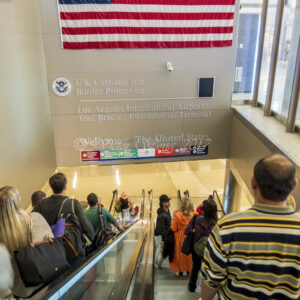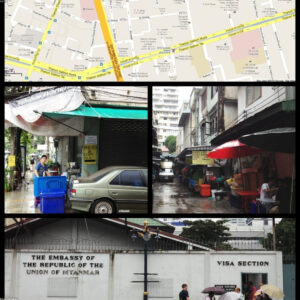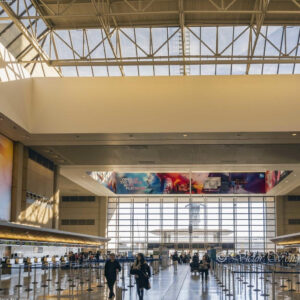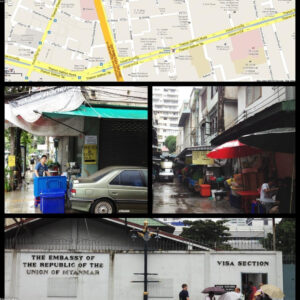The Canadian High Commission and IRCC (Immigration, Refugees and Citizenship Canada) regularly update their processing times. As of July 2025, most Canadian visa programs and work permit streams have experienced mixed shifts compared to July 2024. At the same time, others are improving significantly, while others are experiencing a significant slowdown.
If you have also applied for Canadian immigration or plan to do so, it is crucial for you to understand the processing times for a Canada PR Visa and work permits, as well as the overall Canada Permanent Residency (PR) Application Process.
Processing Time of Permanent Resident Program in 2025
The processing time of each permanent resident program in 2025 is listed below:
Express Entry – Economic Class Canada PR Visa
The Canadian Express Entry program is one of the least affected by processing timing fluctuations compared to temporary and permanent residence applications in recent years. Below, we have provided the details.
- Canadian Experience Class (CEC): The processing time for this Canadian immigration program was 5 months in July 2025, and it remained unchanged from July 2024.
- Federal Skilled Worker Program (FSWP): It increased slightly from 5 to 6 months in July 2025.
- Federal Skilled Trades Program: No data available due to insufficient submission
The Canadian Experience Class program is functioning exceptionally well, and both Express Entry streams are operating within the target ranges, meeting IRCC’s 180-day service requirement.
Provincial Nominee Program – Processing Time Overview
The processing timing for the PNP program has been expanded significantly:
- Express entry-streamlined PNP: 8 months in July 2025, an increase from 6 months.
- Base (non‑Express Entry) PNP: 19 months in July 2025, a leap from 11 months last year
Although Express Entry–streamlined streams are still within a 6-month target, the enormous spike in base PNP wait times (now exceeding IRCC’s 11-month benchmark) reflects increased congestion in the system.
Atlantic Immigration Program (AIP)
AIP processing times have increased significantly in recent years.
- July 2025: 12 months
- July 2024: 7 months
Applicants must now wait nearly half a year longer, with no official service standard established—only anecdotal expectation. While AIP can provide interim work permits, the processing lag can jeopardize job start dates for newcomers.
Processing Time for Spousal Sponsorship
In order to sponsor their spouse, common-law partner, or conjugal partner for permanent residence in Canada, Canadian citizens or permanent residents must apply for the spousal sponsorship program.
However, the processing time for spousal sponsorship can differ based on the following factors.
- Whether you’re applying through the family class or the spouse or common-law partner in Canada (SLCPC),
- Whether you or your spouse is planning to reside either inside or outside the province of Quebec.
| Program | Jul 2025 | Jul 2024 |
| SLCPC (outside Quebec) | 34 months | 11 months |
| Family Class (outside Quebec) | 11 months | 10 months |
| SLCPC (inside Quebec) | 38 months | 28 months |
| Family Class (inside Quebec) | 37 months | 32 months |
Notably, the interior SLCPC outside Quebec increased from approximately 1 to nearly 3 years, surpassing the 12-month IRCC service standard. Sponsorship streams in Quebec, which are usually slower due to additional processing, now exceed three years, indicating capacity constraints in family-class streams.
Temporary Residents Applications
Below, we provide details about the processing times for temporary residents’ applications in Canada in 2025.
Visitor Visa
Outside Canada, processing time trends are country-specific:
- India: 28 days (from 51)
- Pakistan: 36 days (from 47)
- Nigeria: 56 days (from 182)
- Philippines: 33 days (from 27)
- USA: 21 days (from 29)
All except the Philippines experienced accelerated processing, with Nigeria’s cut by over three months—a significant gain.
From within Canada, visitor visa applications now average:
- 18 days, up from 25 days last year
It places internal processing squarely within unofficial expectations, albeit without a specific standard.
Visitor Records
Employed by those renewing or changing status in Canada:
- Current: 193 days
- July 2024: 108 days
This sharp increase—from ~3.5 to ~6½ months—can pose serious gaps in status for renewal applicants, particularly critical for those in Canada with valid status.
Work Permits
From outside Canada, the processing times have significantly accelerated at major origins:
- India: 7 weeks (previously: 19 weeks)
- Pakistan: 5 weeks (previously: 24 weeks)
- Nigeria: 12 weeks (previously: 14 weeks)
- Philippines: 6 weeks (previously: 9 weeks)
- USA: 4 weeks (previously: 18 weeks)
IRCC’s service standard for out-of-country work permits is 60 days (~8½ weeks), so current processing times frequently fall well within or above this target.
From within Canada, Whereas:
- Current inland work permit: 182 days
- July 2024: 109 days
It represents a 10-week delay, now far more extended than IRCC’s internal benchmark of 120 days, which could potentially affect open work permit holders and require applicants to request a status extension.
Study Permits
Outside Canada, country-specific processing times:
- India: 3 weeks (from 4)
- Pakistan: 11 weeks (from 9)
- Nigeria: 5 weeks (same)
- Philippines: 10 weeks (from 8)
- USA: 7 weeks (from 9)
India and the U.S. each saw slight improvements; Pakistan and the Philippines experienced small increases.
Inside Canada
- Initial study permits: 12 weeks (up from 10)
- Study permit extensions: 180 days (versus 58 days in 2024)
Processing times for extensions have increased threefold, creating substantial disruption risks for ongoing students.
IRCC’s target timelines: study permits from abroad within 60 days; in‑Canada applications within 120 days—targets now regularly missed
Citizenship Grants Processing Timing in Canada in 2025
The following information outlines the processing timeline for citizenship grants in Canada in 2025.
- Current: 10 months
- July 2024: 7 months
Although there is a 12-month service standard, increased wait times restrict IRCC from achieving it for 80% of the cases.
The following information explains the processing timing for a certificate of citizenship:
- Current: 5 months
- July 2024: 3 months
There is no formal standard, but processing time is incrementally rising, especially for those applying from abroad through embassies (IRCC recommends adding 3–4 months).
Conclusion
From July 2024 to July 2025, IRCC’s system shows mixed results: some processing times are faster (for example, external visitor, work, and study permits), but there is also a significant backlog in inland streams (family sponsorship, renewals, and in-country applications). These conflicting trends stem from IRCC trying to manage a high caseload while adjusting priorities based on future projections.
Forward-looking, future applicants—especially those on temporary permits in Canada or sponsoring relatives—should include extended timelines in their plans to maintain status and have contingency measures in place. Meanwhile, IRCC needs to keep investing in capacity and operational efficiency to reduce backlog pressures and better balance service times across categories.
For more details about the Canada Immigration process, reach out to the best Canada immigration consultant in Delhi via +91 9911338722 or info@keymartvisa.com





